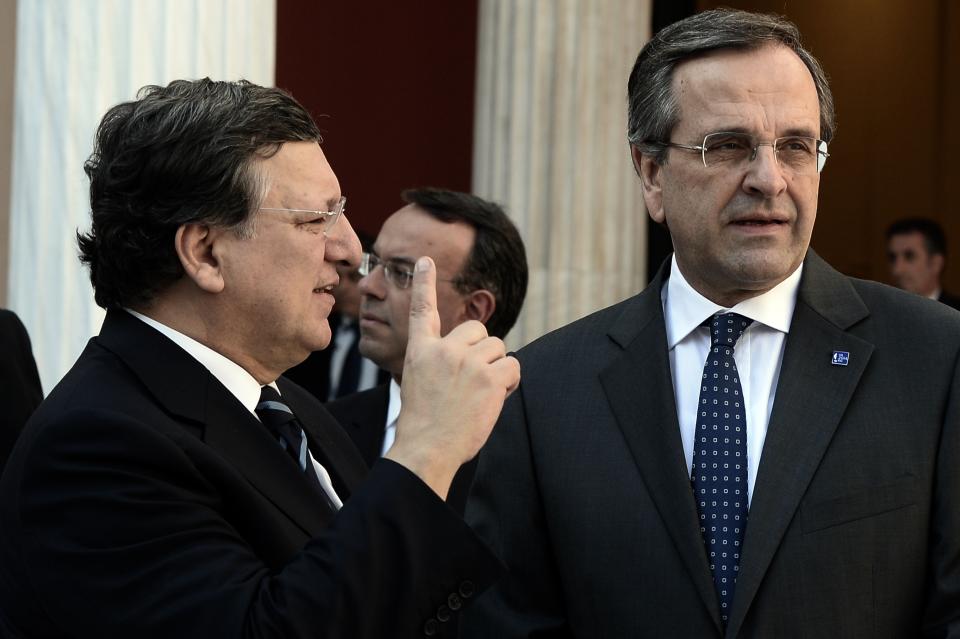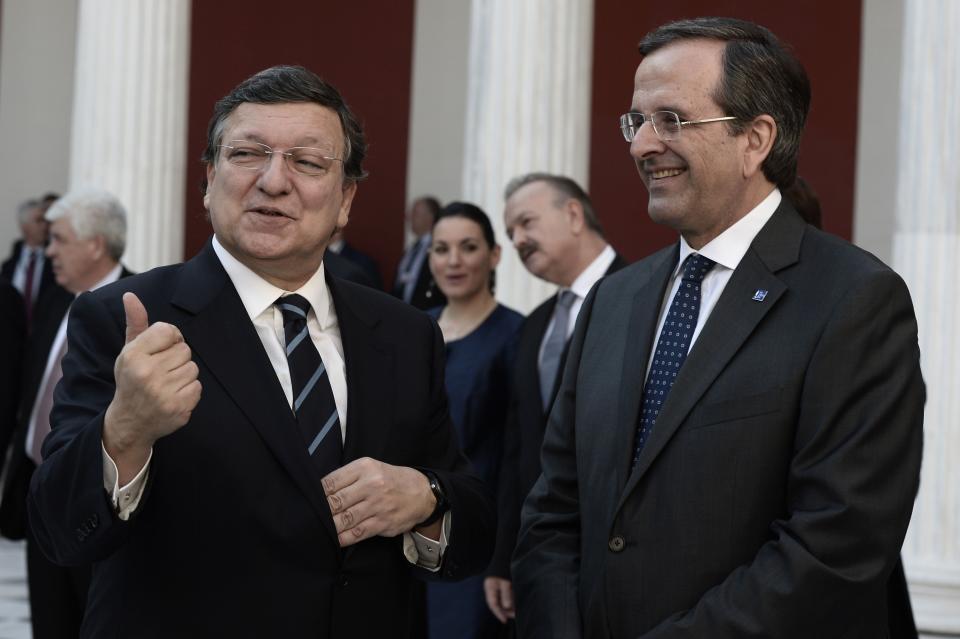Greece formally assumes EU rotating presidency
ATHENS, Greece (AP) — Greece's prime minister and the head of the European Commission struck an optimistic note Wednesday as the country formally assumed the European Union's rotating six-month presidency, with both underlining how far the financially stricken nation had come in reforming its economy.
"Greece, with great sacrifices, leaves the crisis behind it," Prime Minister Antonis Samaras said during joint statements with European Commission President Jose Manuel Barroso, shortly before an official opening ceremony.
Reeling under a gaping budget deficit and massive debt, Greece has been dependent on rescue loans from other EU countries that use the euro as their currency and from the International Monetary Fund since May 2010.
In return for billions of euros in bailout loans, successive governments have had to impose harsh austerity measures in an effort to overhaul the country's economy. The spending cuts and repeated tax hikes have led to deep resentment among many Greeks, sparking a string of general strikes and often violent protests.
To avoid embarrassment at Wednesday's ceremonies in Athens — also attended by European Council President Herman Van Rompuy and commissioners from across the EU — authorities banned all protests for 18 hours in a broad swathe of the city center.
Police also shut down roads and subway stations, and riot squads were stationed throughout central Athens.
About 400 leftwing supporters who tried to defy the protest ban far from the venues briefly scuffled with police late Wednesday before being dispersed with tear gas. No arrests or injuries were reported.
Athens hopes to emerge from a grueling six-year recession in the next six months, and negotiate a landmark deal with bailout creditors to make its massive national debt sustainable.
Samaras said that during its presidency of the 28-nation bloc, Greece would focus on economic recovery, fighting unemployment and tackling security issues, including migration.
Alexis Tsipras, head of the main opposition radical left Syriza party, was not attending the events, drawing criticism from the governing two-party coalition.
For his part, Barroso stressed that financial rescue packages do work, pointing to the success of Ireland, which managed this year to leave its own bailout program and return to borrowing on the international bond market. He urged Greece to stick to its own reforms and "not to give up."
"Programs work, and we should not waste the efforts made so far," he said, adding that he was "fully aware" of the difficulties Greece and its people were going through.
"As I said exactly one year ago, 2013 would be, and it was, the year when the European economy would start to turn the corner," Barroso said, adding that not so long ago, some were speculating that Greece would be forced to leave the euro and that the joint currency would implode.
"The very fact that we are here today, celebrating the Greek presidency ... is clear evidence that those predictions were wrong," he said.





